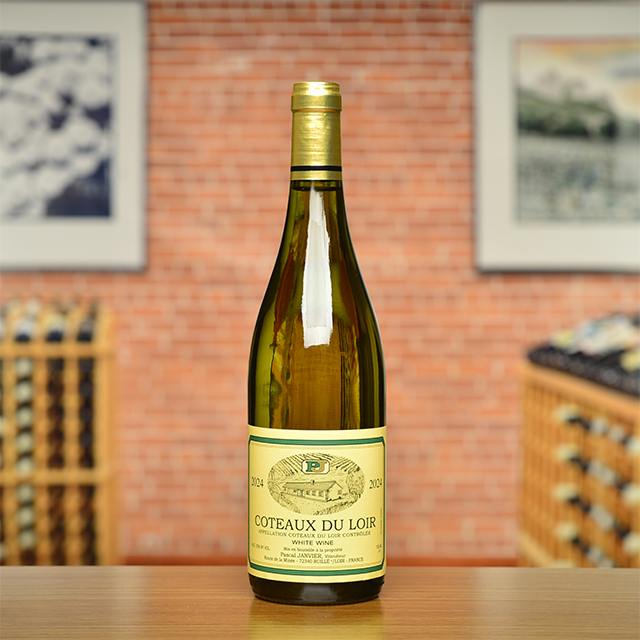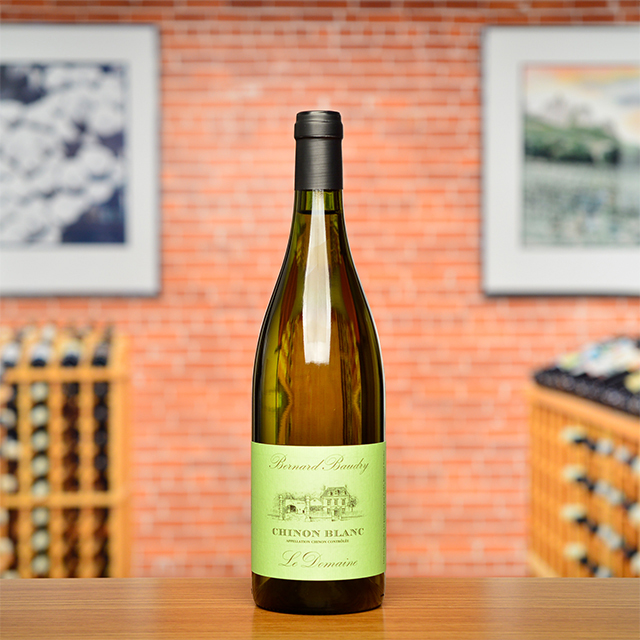Notify me
2018 Savennières “Cuvée Spéciale”
Château d’Épiré
In his book Adventures, Kermit outlines the magic of old-school Savennières, aged in chestnut casks. The rise of stainless steel sadly put many such coopers out of business, but fortunately the team at Château d’Épiré can still count on one reliable chestnut purveyor. This material is an excellent match for schist-born Chenin Blanc, as it accentuates the wine’s stony austerity without imparting any woody flavor. The 2018 blend also includes a couple barrels each of acacia, highlighting Chenin’s subtle floral tendencies, and old oak, exalting its fleshy structure with nary a hint of vanilla or toast. With a rigid backbone of acidity and a bone-dry finish recalling fresh walnuts, this is quintessential Savennières.
—Anthony Lynch
| Wine Type: | white |
| Vintage: | 2018 |
| Bottle Size: | 750mL |
| Blend: | Chenin Blanc |
| Appellation: | Savennières |
| Country: | France |
| Region: | Loire |
| Winemaker: | Luc Bizard |
| Vineyard: | Planted in 1989, 1.5 ha |
| Soil: | Schist |
| Aging: | Ages for about 6 months sur lie in very old chestnut demi-muids |
| Farming: | Lutte Raisonnée |
| Alcohol: | 13.5% |
More from this Producer or Region

2021 Bourgueil “La Dilettante”
France | Loire
A delicate, aromatic red in the “drink now!” vein.

2022 Vouvray “Le Portail”
France | Loire
The most serious and age-worthy of Champalou’s dry wines, it has a depth and richness of flavor that allow it to shine alongside refined cuisine.

2019 Saumur Blanc “Le Clos du Moulin”
France | Loire
Thierry Germain’s meticulous process coaxes out the delicate and aromatic side of Chenin Blanc—think jasmine, honeysuckle, and peach.

2024 Savennières “Cuvée Spéciale”
France | Loire
Powerful, cellar-worthy dry Chenin aged in chestnut, oak, and acacia.

2018 Saumur Blanc “L’Échelier”
France | Loire
Burgundian-like in character from its time spent in barrel, the laser-like acidity will become even more enticing with some age.

2024 Bourgeuil “Cuvée Beauvais”
France | Loire
Smooth and seductive on the palate, Cuvée Beauvais offers a resurgence of silky fruit and florals—like blackberries and roses, without the thorns.

2018 Muscadet Sèvre et Maine “Gorges”
France | Loire
Gorges boasts an incredible texture and tension imparted by decomposed, blue-green igneous rock, seventy-year-old vines, and years-long aging on the lees.

2024 Coteaux du Loir Blanc
France | Loire
Exotically perfumed with hints of guava, musk, and clove, it finishes dry and quite flinty.

2023 Chinon Blanc
France | Loire
A rare Chenin Blanc from the land of Cabernet Franc. Ultra fresh and brimming with citrus blossom and orchard fruit notes, it has a saline, mineral finish that leaves my palate simultaneously satisfied and begging for more. Try it with fresh trout, grilled whole topped with chimichurri or smoked and tossed into a Niçoise salad.

2021 Vin de France Blanc “Chenin Centenaire”
France | Loire
Fermented and aged in barrel and bottled unfiltered, it features a delightful kiss of oak on the long, bracing, mouth-watering finish.
About The Region
Loire

The defining feature of the Loire Valley, not surprisingly, is the Loire River. As the longest river in France, spanning more than 600 miles, this river connects seemingly disparate wine regions. Why else would Sancerre, with its Kimmeridgian limestone terroir be connected to Muscadet, an appellation that is 250 miles away?
Secondary in relevance to the historical, climatic, environmental, and cultural importance of the river are the wines and châteaux of the Jardin de la France. The kings and nobility of France built many hundreds of châteaux in the Loire but wine preceded the arrival of the noblesse and has since out-lived them as well.
Diversity abounds in the Loire. The aforementioned Kimmeridgian limestone of Sancerre is also found in Chablis. Chinon, Bourgueil, and Saumur boast the presence of tuffeau, a type of limestone unique to the Loire that has a yellowish tinge and a chalky texture. Savennières has schist, while Muscadet has volcanic, granite, and serpentinite based soils. In addition to geologic diversity, many, grape varieties are grown there too: Cabernet Franc, Chenin Blanc, Sauvignon Blanc, and Melon de Bourgogne are most prevalent, but (to name a few) Pinot Gris, Grolleau, Pinot Noir, Pineau d’Aunis, and Folle Blanche are also planted. These myriad of viticultural influences leads to the high quality production of every type of wine: red, white, rosé, sparkling, and dessert.
Like the Rhône and Provence, some of Kermit’s first imports came from the Loire, most notably the wines of Charles Joguet and Château d’Epiré—two producers who are featured in Kermit’s book Adventures on the Wine Route and with whom we still work today.
More from Loire or France
2020 Saumur-Champigny “Franc de Pied”
Thierry Germain France | Loire
2023 Menetou-Salon Blanc “Cuvée des Bénédictins”
Prieuré de Saint Céols France | Loire
2024 Chinon Rosé
Bernard Baudry France | Loire
2022 Muscadet Sèvre et Maine “Réserve”
Domaine Michel Brégeon France | Loire
2021 Saumur Blanc “Terres”
Thierry Germain France | Loire
2024 Bourgueil “Trinch!”
Catherine & Pierre Breton France | Loire
2020 Chinon “Les Varennes du Grand Clos”
Charles Joguet France | Loire
2020 Saumur Blanc “Clos Romans”
Thierry Germain France | Loire
2024 Sancerre Rosé
Domaine Roger Neveu France | Loire
2024 Gros-Plant du Pays Nantais
Domaine Michel Brégeon France | Loire
2024 Vouvray
Champalou France | Loire
2024 Coteaux du Loir Blanc
Pascal Janvier France | Loire
2020 Saumur-Champigny “Franc de Pied”
Thierry Germain France | Loire
2023 Menetou-Salon Blanc “Cuvée des Bénédictins”
Prieuré de Saint Céols France | Loire
2024 Chinon Rosé
Bernard Baudry France | Loire
2022 Muscadet Sèvre et Maine “Réserve”
Domaine Michel Brégeon France | Loire
2021 Saumur Blanc “Terres”
Thierry Germain France | Loire
2024 Bourgueil “Trinch!”
Catherine & Pierre Breton France | Loire
2020 Chinon “Les Varennes du Grand Clos”
Charles Joguet France | Loire
2020 Saumur Blanc “Clos Romans”
Thierry Germain France | Loire
2024 Sancerre Rosé
Domaine Roger Neveu France | Loire
2024 Gros-Plant du Pays Nantais
Domaine Michel Brégeon France | Loire
2024 Vouvray
Champalou France | Loire
2024 Coteaux du Loir Blanc
Pascal Janvier France | Loire
Vintage Chart Mentality

Vintage Chart Mentality
Trust the great winemakers, trust the great vineyards. Your wine merchant might even be trustworthy. In the long run, that vintage strip may be the least important guide to quality on your bottle of wine.—Kermit Lynch














